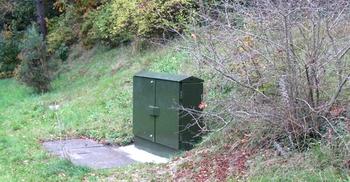The National Audit Office (NAO) has been investigating claims that there is no real competition to BT for the rural broadband procurement contracts and spending of a £530 million government subsidy. If true this could lead to uncompetitive tender bids being accepted and a waste of taxpayer’s money.
A report in the FT says that the Department for Culture, Media and Sport (DCMS), who are in control of the rural broadband initiative, will be the subject of strong criticism in a NAO report, due next month. The report says that politicians in control of the process have created a “train crash” with the procurement process both lacking in competition and transparency “and that train appears to be accelerating rather than slowing down” said a person close to the process.
Initially other companies, such as Fujitsu, would bid for rural broadband procurement, however because they lacked the economies of scale of BT many have now dropped out from bidding on further work. This learned helplessness has meant that BT can now afford to be less competitive in its tendering quotes and still get the work. An earlier leaked report last year suggested BT has been overcharging for rural broadband installation work under the scheme to the tune of “hundreds of millions of pounds”.
On Monday BT responded to these reports saying it was delivering value for money; “We are contractually committed to ensuring the costs we incur in broadband partnerships are consistent with our own commercial costs, and we are also reinvesting savings to go further when we can.” In addition the DCMS said it has the confidence of the government that it will deliver value for money results, with broadband in rural areas transformed by 2015. The department added that there are independent assessment and clawback clauses in all its rural broadband contracts so overcharging should not be an issue.
The rural broadband programme aims to “provide superfast broadband to at least 90% of premises in the UK and to provide universal access to standard broadband with a speed of at least 2Mbps,” by 2015.








